
Man, do I love San Francisco. If it weren't for the constant fog and chill, this sun-lovin' beach girl would certainly be calling SF my home. One of my favorite things about San Francisco is the coffee.
Not only do the natives revere good beans, but lattes and cappuccinos are made to perfection – using organic milk from grass fed cows, perfectly steamed and artfully poured.
So when my sister (a local) emailed me a photo of this new sign hanging at Four Barrel in the Mission, I did a happy dance.
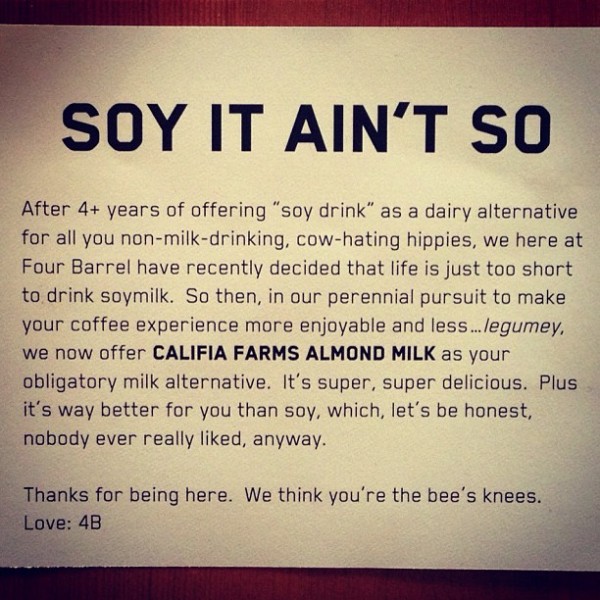
Four Barrel looks like a movie set for a hipster coffee shop, but this place and it's patrons are the real thing. Now they have a reason to be even more hip – the coffee shop bans soy milk.
Four Barrel owner, Jeremy Tooker, has stopped serving soy milk and now offers locally made almond milk – as their dairy-free alternative.
“Honestly, I never really understood the soy phenomenon. It's not that good for you, unless it's fermented, and you've got this whole GMO problem behind it,” Tooker explains. (source) A man after my own heart.
Why is soy bad?
I'm so glad you asked.
Soy had a huge hey-day as a miracle food from the 90′s, and the hype is still alive and well for many ‘health-conscious' people.
BUT, while soy and soy products may seem like a good source protein for vegetarians and a great substitute for those who don't do dairy, in reality, this bean has quite of list of reasons why to just say NO – including allergies, thyroid problems, hormonal imbalances including PMS and infertility, and more.
Here are are few reasons to avoid the stuff:
#1 – Soy contains phytoestrogens.
Soy contains more phytoestrogens than almost any other food product.
Phytoestrogens are plant-based estrogens that mimic the natural estrogen found in our bodies. They have been linked to early onset of puberty, breast cancer, thyroid conditions and both male and female infertility. (source)
#2 – Soy can cause allergic and toxic reactions.
Soy is among the top 8 most common food allergens, and it can be a silent villain since allergic reactions to soy are not always immediate.
High manganese levels in soy formula may cause brain damage from toxicity. There also appears to be a relationship between soy formula consumption and the development of ADHD and behavioral problems in kids. (source)
#3 – Soy is one the the biggest GMO crops.
Since the 1990s, genetically modified soy has been widely grown and used in food products in the United States.
GM foods pose huge threats on the environment, reek havoc for farmers livelihood, and may be dangerous to human health including possible increase risk for allergy. Read more about all the reasons why GMOs are bad in this post on GMOs and infertility.
Do I need to avoid soy completely?
You should avoid GMO soy always, and eliminate other soy as much as possible – especially if you are trying to get pregnant, you have immune weakness or hormone imbalance, or you are a baby or child.
Two more things to know:
- Fermented soy is GOOD! Fermented soy products – such as tempeh, unpasteurized soy sauce, miso, and natto – are actually quite good for you. Fermented soy does not contain the anti-nutrients present in non-cultured soy products. The fermentation processes increases the availability of isoflavones which are associated with cancer prevention and produces probiotics, the beneficial bacteria that improves digestion and nutrient absorption in the body.
- Read your labels – Soy is a common ingredient in popular “health” foods and protein supplements. Make sure you know what you’re putting in your mouth to avoid accidentally saucing yourself with soy.
And by all means, take a note from the experts – don't put soy milk in your coffee! Blech.
Are you a former soy milk drinker? Please share your story below!
 How your lifestyle may be inhibiting your ability to conceive – and what to do about it
How your lifestyle may be inhibiting your ability to conceive – and what to do about it

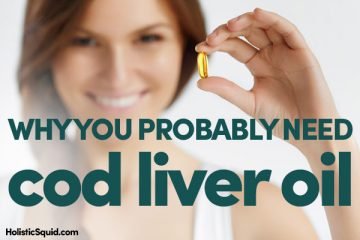
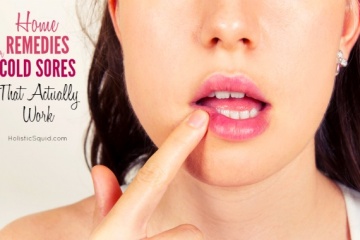
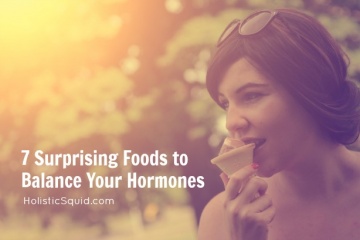
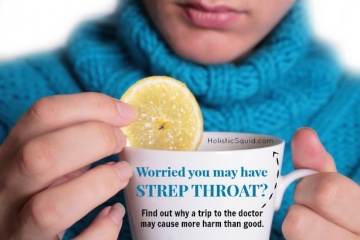
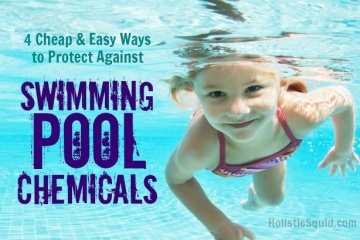
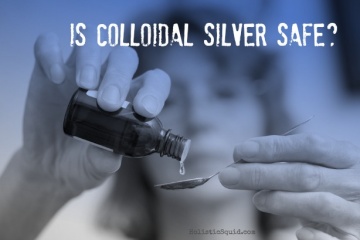
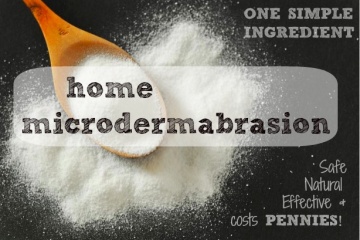
Yes! I’m glad you are spreading the word about soy. I had no idea about the ill effects until I took my son to a natural health care practitioner to see what alternatives to surgery we could find for his trigger thumb. (a growth on the tendon that prevents it from sliding and locks it in the bent position.) One of the first things she asked about was his soy consumption. He has always been somewhat of a self-appointed vegetarian. He has just never liked meat. I had added a lot of soy to his diet (all the wrong types.) She let me know that amongst other problems, soy can cause various types of inflammation. Long story short, after eliminating soy, the bump has shrunk, then tendon has loosened and he is almost able to flex his thumb all the way.
Wow! Thanks for sharing, Karen! 🙂
Very interesting article. Even when I was a vegetarian for 9 years I rarely drank or ate soy products. The flavor and texture just rub me the wrong way… It’s raw cow’s milk for me all the way! Unless goat’s milk becomes readily available to me… 🙂
Yay! Thanks for posting this! I was actually AT Four Barrel months ago and asked if they had almond milk lattes, which at the time did not. Exciting to FINALLY be able to have a decent latte that doesn’t include soy or cow’s milk.
I am wondering about tofu? I love it! But I have pretty much eliminated soy from my diet. Occasionally I do eat tofu.
I don’t think that eat tofu occasionally won’t kill you. Especially if you enjoy it. 🙂
There are also other classes of toxins in soy.
Trypsin inhibitors that block the digestion of protein
Goitrogens that attack the thyroid
Phytates that block mineral absorbtion
Hi Michael – Thanks for adding these. 🙂
Oh how I love San Francisco. I think reading this warrants a trip to 4 Barrel this weekend! Thanks for sharing.
Being, alas, at a point where a rich source of estrogen is no longer my own body (ok, I’m old!), I’m not ready to give up organic soymilk, which eliminates the GMO issue. I need the phytoestrogens these days.
Also, be sure when you go for almond milk that it, too, is organic, as almonds are one of the most heavily pesticide-sprayed crops in the country, and are grown in gigantic monoculture orchards (only one crop, instead of a healthy variety). In addition to pesticide reside in the fruits, this wreaks havoc on the honeybees vital for pollination. Since the almonds only bloom for a few weeks there’s not enough food to keep honeybees year round, so they are imported on huge trucks by the billions. They do their job, are poisoned, and die. And the honeybee die-off problem is a mystery??????
Hi Anna – Thanks for your comment. Sounds like almonds may be calling me to write a post soon! 🙂
As for the soy milk, I’m not convinced that the benefits of phytoestrogens in soy outweigh the risks. I promise to write more on this soon, but in the meantime, have you seen this post?
http://www.thehealthyhomeeconomist.com/soy-a-big-fat-zero-for-menopause-symptoms/
I have recently changed to a plant-based diet for my health. I am a big baby and need “milk” on my cereal in the morning. I’ve been using soy milk, but am hearing more and more bad things about it. I have nut allergies (which makes it tough going vegan), so almonds are out. What are other good “milk” alternatives? I’ve tried rice “milk” which is OK. Rice, almond and soy “milk” are the only products I’ve seen in my mostly rural/small town shopping sphere. Are there good sources for other vegan products? You can’t find tempeh anywhere, and most store employees have no idea where the quinoa might be stocked. 🙂
http://www.westonaprice.org/abcs-of-nutrition/health-topics. There is no reason to become a vegan. It is ultimately an unhealthy and unnatural choice for humans . ALL of the arguments for a vegan diet do not stand up to science. People point to the animal foods in the modern diet as the cause of modern diseases. If we examine what has changed in the modern diet in the last century we see that the use of animal foods and fats had decreased. We use about 1/5 of the butter cream and lard as we did 100 years ago. Still heart disease,cancer,diabetes have increased. If we look at what macro-nutrients have increased in the western diet we see that the use of refined carbohydrates and vegetable seed oils(hydrogenated or not) has dramatically increased. If we look at man living in his most primeval, natural state, eating diets that have evolved over thousands of years, allowing him to most efficiently adapt to his environment, we see that hunter-gathers get on the average 2/3 of their calories from animal foods.some like the masai, inuit and plains indians get/got almost %100 of their calories from animal sources. . Doctors, explorers and missionaries encountering these peoples for the first time universally noted a virtual absence of all modern diseases until they started eating modern foods. i.e. white flour, sugar and vegetable oils. This pattern was repeated all around the world. There has never been a vegan culture or society.
Thank you Michael for sharing this incredibly important information. I was heartbroken today when I learned that a friend’s sister is raising her two babies on a vegan diet ( they do eat dairy products) .
That is crazy. There is absolutely nothing in meat or dairy that you can’t get from a diet of whole plants, grains, and legumes. I have been a vegan for years and I feel better than ever, my weight is stable, and my blood work is always very healthy. If you eat fake chicken and white rice every night, you’re unhealthy whether you’re a vegan or not, but a conscious, well-rounded diet based on plants and healthy proteins is the healthiest option out there for everyone. ESPECIALLY considering how many disgusting hormones and antibiotics are in all meat and dairy.
I am so sick of people saying we should eat like our ancestors. You can only eat that way if you’re prepared to live outside and hunt and kill your own food, build a fire and light it without a match, and cook the food yourself. Oh, and in case you’re curious, hunter-gatherers didn’t exist solely on meat. They ate mostly wild plants and berries because catching a wild animal and killing it is extremely hard and doesn’t happen everyday. Please stop assuming that all vegans and vegetarians sit around and eat bagels all day. That is small-minded and a disservice to everyone who works hard to eat healthy.
Good post Molly!! In addition to that, becoming a vegan or vegetarian is also about attempting to make good moral choices and choosing to minimize ecological and environmental damage and revering other forms as much as possible. “Science” has also given us with nuclear weapons, huge amounts of waste and poisonous gases eating at the ozone so it doesn’t “stand up” to itself!
You’re more likely to catch a rabbit in winter than a local, seasonal carrot. Incisors aren’t there because we weren’t meant to use them.
Have you tried coconut milk? It’s quite delicious and they even make a coconut milk coffee creamer now!
We try to limit soy products in our family and we use almond milk. However we do eat organic edamame sometimes – what do you think about edamame? I’m not sure if it has the same ill effects as other soy products that aren’t fermented. And if they are for some reason in a different category, are they a healthy snack for toddlers (I have a 1 yr old)? Thank you!
Definitely NOT. Soy is soy. I would especially not give edamame to children. I harmed my thyroid through eating soy, thinking it was a healthier alternative to animal food. It is all nonsense. Animal flesh is what we have evolved as humans to eat. The nutrient dense flesh and fat of herbivores is what gave us the energy to become human. No anthropologist will dispute this . Go here for very relevant dietary information including the dangers of soy
http://www.westonaprice.org/abcs-of-nutrition/health-topics
Hi Tanya – I agree with Michael. Though edamame seem like a healthy snack (they are green, after all!), I would keep soy to a minimum in all forms unless fermented and organic. The occasional organic edamame is not going to kill anyone, but I would keep it to once or twice per month.
What about sprouted tofu? Thoughts?
Hi Lorelei – I’m not 100% sure, but I would imagine that while sprouting takes care of some of the phytic acids and other anti-nutrients, it doesn’t account for the phytoestrogens. Anyone else know?
I’m totally against GMO anything. But I will say this for soy, personally: Those phytoestrogens really HELP me with my PMS and bad cramps. That is all.
Also be on the lookout for carrageenan, a seaweed-based thickening agent added to many “plant milks.” There’s a food-grade and non-food grade form, but there are numerous studies from organic associations that even food-grade carrageenan is associated with inflammation of the colon and ulcerative colitis. Once the seaweed is processed, it seems to cause all kinds of problems. Below is a link to Cornucopia.org’s shopping guide to avoiding organic foods containing carrageenan (very few almond milks on this list!)
http://www.cornucopia.org/2012/05/shopping-guide-to-avoiding-organic-foods-with-carrageenan/
There should be a ban in the United States on all soy in foods and personal use products; along with that carrageenan, which now appears in products you wouldn’t believe. Sadly/madly, I learned that the eggs I’ve been eating – two a day – are fed soy mash, which probably explains a lot of intestinal information, too.
So, is there no safe way to consume soy products? Like soaking or sprouting? My mom is vegetarian and eats a lot of soy products like tofu and makes homemade soy milk with non GM soy… Thank you for this info! 🙂